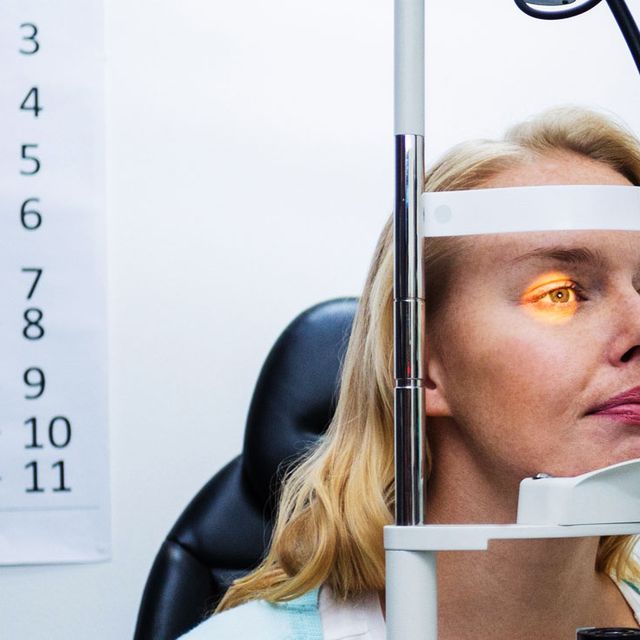
Blog

Doctors run many tests during a vision exam. These tests range from simple to complex. From reading a simple eye chart to high-tech scans with machines, these tests give the doctor important information that helps to diagnose specific eye conditions and diseases.
One important test is the OCT retinal scan. OCT stands for optical coherence tomography. It is a type of scan that uses dim red light waves to create an image of the retina. It is noninvasive, meaning nothing touches the eye.
What Happens During the Scan
The ophthalmologist will have the patient sit in front of the machine with his or her chin on a chin rest. The scan only takes a few minutes and then will generate cross-sectional images of the eyes. Some patients also get drops to dilate their pupils. The effects of the pupil-dilating drops can last several hours, but the scan itself is very fast. It takes about five to 10 minutes per eye.
The doctor will ask the patient to look for a green light while the machine scans the eye. The doctor may run this test in a darkened room because it can produce more accurate results.
What Are Doctors Looking For
From the OCT scan, the ophthalmologist can tell how thick the retinas are. The doctor will also look for anything unusual in the optic nerve. For patients with glaucoma, the doctor will use this scan to look at the anterior angle — the drainage channel — of the eye.
There are many other conditions that the doctor can diagnose from this scan. These include:
- Central serous retinopathy.
- Age-related macular degeneration.
- Other diabetic eye diseases.
Doctors also use this exam to monitor multiple sclerosis patients.
The doctor is not the only person who can look at the OCT scan. It can be a valuable tool in explaining an eye condition since the scan generates a 3D scan that the patient can see.
Who Should Get an OCT Retinal Scan?
People over the age of 25 can benefit from this exam. Ophthalmologists may recommend this scan even if the patient is in good health with no known eye conditions because the scan is so informative. It is normal to get this scan during a patient’s annual eye exam. Patients with a family history of certain eye diseases should get an OCT retinal scan. Although some insurance plans do not cover the OCT retinal scan, it is still a valuable tool in monitoring and diagnosing many eye conditions.
Some patients do not benefit from an OCT retinal scan. Patients with cataracts or bleeding in the vitreous — the jelly-like inside of the eye — should not get an OCT retinal scan. This scan uses light to create the image, and certain conditions interfere with how light passes through the eye.
See the Results
An OCT retinal scan is an important exam that can help you to better understand your eye health. It can help the doctor identify conditions sometimes before symptoms arise. In other cases, he or she can confirm a condition. This opens the door to forming a plan of care for long-term eye health.
The staff at Super Optical Express, located in Gainesville, Florida, will help you craft the right eye care solution. To determine if an OCT retinal scan is a good idea for you, call them today at (352) 702-9700.



